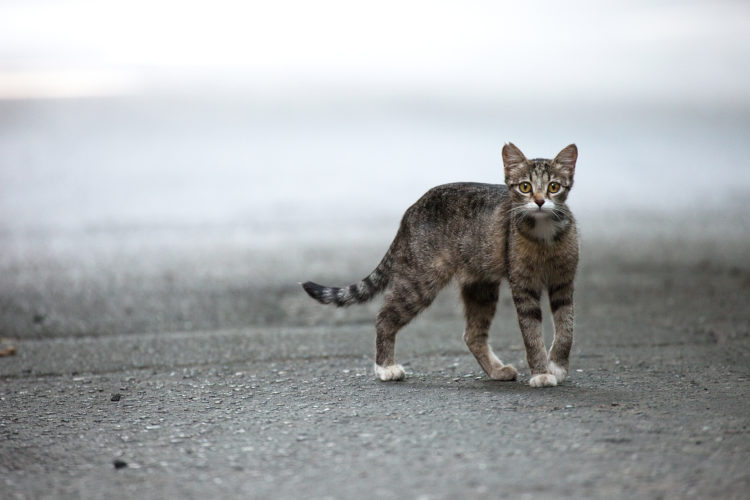When you hear the term, “Feline AIDs”, you may shudder a little bit. After all, FIV and Feline AIDs are scary and deadly viruses, right? Well, feline Immunodeficiency virus (FIV) is an auto-immune disease in cats that is not dissimilar from HIV. Many sources dispute the prevalence of FIV across the United States.
Cornell speculates that up to 3% of healthy cats and 15% of sick cats may have FIV. The difference is, FIV is not as serious as it’s human counterpart and is much less likely to develop into AIDs. That doesn’t mean it is to be taken lightly though and Front Page Meews is here to give you the facts!
History of FIV
Back in the 80s, people began to notice that some cats were exhibiting similar symptoms to humans that were HIV+. Being the inquisitive people that they were, a group of scientists conducted a study on cats to show immune system deficiencies. By the end of their study in 1987, they had confirmed that cats basically have their own strain of HIV that can also develop into full-blown AIDs. The virus causes a cat’s immune system to break down and leaves them susceptible to fatal infections. Don’t worry, this isn’t the worst news in the world!
Many FIV positive cats live long, happy lives.
The FIV virus takes years to activate and most of the time, cats do not show severe symptoms until very late in their lives! Yet, there are many indicators of the immune system virus and it is always recommended to be vigilant of your kitty’s health. Symptoms include things such as gum and mouth inflammation, recurring illnesses and infections, enlarged lymph nodes and respiratory problems. FIV does not directly show up as any outward symptoms but rather reduces the effectiveness of a kitty’s immune system. Such a reduction may lead to minor illnesses or infections regularly recurring.
If FIV is left untreated, it may lead to full blown AIDs occurring sooner in a cat’s life. When this happens, the poor kitty’s immune system is left in shambles. Any infection or exposure to bacteria can be life-threatening and may result in death. Because of this, it is important to make sure your furry friend is safe and is at low risk of exposure to the virus.
Transmission
Luckily for most owners, indoor cats are at an extremely low risk of catching FIV. This is because FIV is mainly transmitted through saliva in cats. Feral and stray male cats that engage in cat fights are at the highest risk and most FIV transmissions are thought to come from bite wounds during cat fights. Mother cats with FIV also risk transmitting the virus to their unborn kittens.
If you have multiple cats and one becomes infected, the others are unlikely to catch the virus. In fact, cats that do not fight can live comfortably with an FIV positive kitty. Don’t believe me? Just ask Cole and Marmalade! This Instagram-famous duo loves each other and interact all the time. Marmalade is FIV+ but you would never even know it! Cole and their human parents love them just the same!
Not to worry, when it comes to cross-species transmission, the virus is unable to transfer between species. Just to clarify, you will not get AIDs if a cat bites you. FIV, in its current form, can only be transferred from cat to cat.
What Can I Do?
Since indoor cats will most likely not catch FIV, the best course of action is to keep your fluffball indoors as much as possible. If your cat is an adventurer, getting FIV vaccines may be your best bet. It is extremely important to talk to your friendly neighborhood veterinarian before making any decisions.
Keep an eye on your kitty’s health. If your cat is constantly getting sick or catching infections, it may be time to get tested. If you believe your cat has caught the virus, keep them away from any other cats until you know whether or not they are FIV+. Due to the dormant nature of the virus, it is recommended to get your cat tested again after the first exam.
Keep Calm
We all want the best for our cats, therefore it’s important to take steps to insure their health and safety. Keeping them indoors, monitoring their health and talking to your vet can dramatically decrease the chances of your kitty getting FIV. The virus is scary but if your feline is diagnosed, it is likely they will live a mostly normal life.









